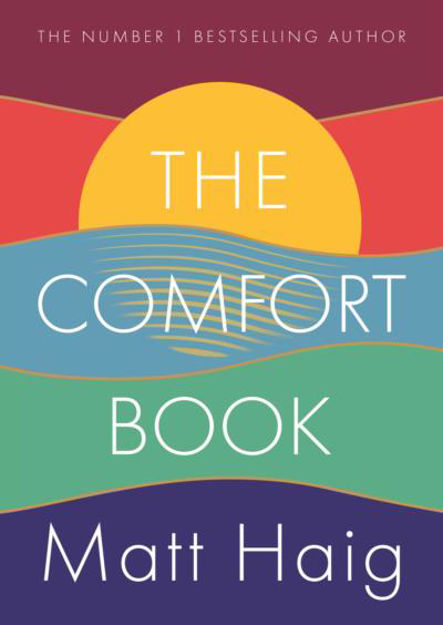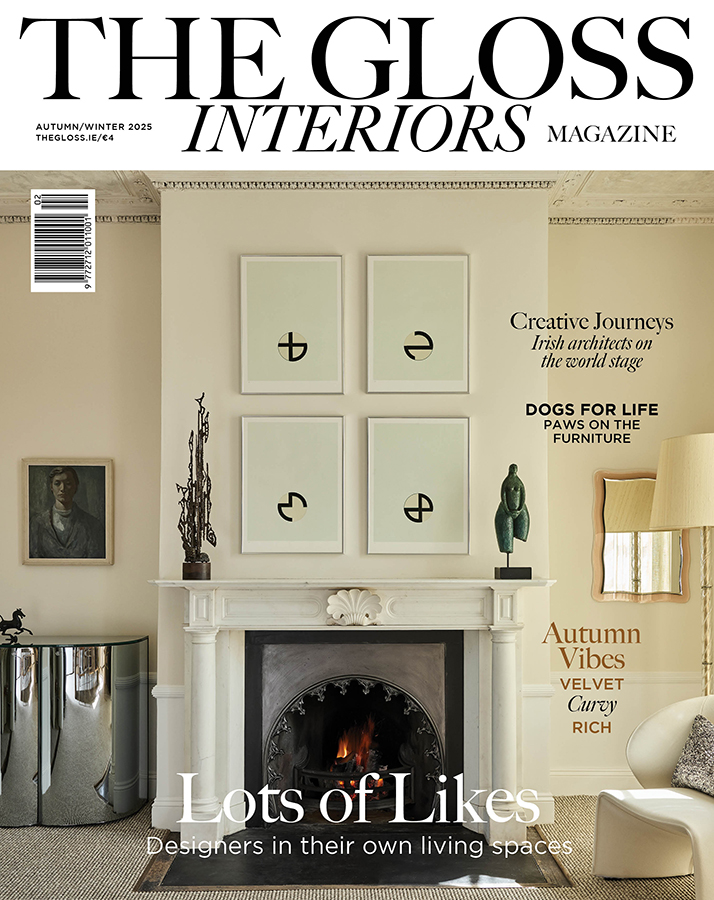In The Comfort Book, author Matt Haig offers sound advice for maintaining good mental health by embracing uncertainty and learning to be wholeheartedly oneself …
Current
Even though I have largely recovered from depression, the door is never quite closed, always slightly ajar. I sometimes feel it, light like the ghost of a breeze, very much there. Unseen, but felt. I accept this now but it took time. The binary system of illness and wellness I used to believe in meant you were either one or the other. This was dangerous, because it meant that whenever I began to feel a tiny bit ill again, I would become deeply anxious and depressed that I was back to being properly ill. It would become a self-fulfilling prophecy. I would become ill because I believed I was. The reality of health, and particularly mental health, is often ambiguous. It is not quite one thing or another. We have a thousand labels for different mild to severe conditions, but reality isn’t a simple jar we can stick a label on, to say this is what it is, and it will never change. And nor is mental health something we can clear up once and for all, but rather something we always have to attend to, like a garden that needs nurturing, for as long as we live. Accepting this is both discomforting and comforting. It is discomforting because it means we have to accept that bad feelings and memories can return, and it is comforting because we know that if they do we will be ready for them, and accepting of what they are, transient and changing. We can move against the current of life, and forever meet resistance, or we can let our thoughts flow, and become the free uncertain river.
How to make a bad day better
Get up. Get washed. Get dressed. Put your phone in another room. Stand up. Move your body. Go for a walk. Stretch. Place your legs against the wall. Get some sunlight, if there is some available. Head, if you can, to somewhere green. A garden, a park, a field, a meadow, a forest. Breathe deeply and slowly and consciously for a little while. Phone someone you love. If there is a nagging thing you are expected to do, but really don’t want to do, cancel it now. Do it now. If you can, cook a good meal and concentrate on the process. Cooking is the best kind of active meditation. Avoid artificial blue light, especially after dark. Allow bad thoughts, because that way they pass through quicker. Watch some TV you really like. But before you watch it, work out how long you want to watch for, and stick to it. If it is a clear night, watch the stars, just as Marcus Aurelius did in times of turmoil nearly 2,000 years ago. Go to bed before midnight. Don’t try too hard to get to sleep. Just allow your mind to absorb the day, and let all those fears and frustrations float through.
Aim to be you
If you aim to be something you are not, you will always fail. Aim to be you. Aim to look and act and think like you. Embrace that you-ness. Endorse it. Cherish it. Love it. And don’t give a f**k if people mock you for it.
Connected
We all have an impact on each other. We are all connected in so many seen and unseen ways. Which possibly explains why one of the simplest and quickest routes to happiness seems to be to make someone else happy. The reason to be selfless is selfish. Nothing makes ourselves feel better than not thinking of ourselves.
The subject in the sentence
We might feel that others are judging our worth via metrics like income and follower counts and weight and chest measurements and all the rest of it, but always remember we are more than can be measured. We are life itself. We aren’t the narrow band of feelings in a single moment. We are the vessel that could contain any feeling. We are the subject in the sentence. We are more than the sum of our achievements. We are more than the feelings we witness. We are the infinity that remains when you subtract them.
The best of life exists beyond the things we are encouraged to crave.
Chapter
There is no point spending an entire life trying to win the love you didn’t feel when you needed it. You sometimes just have to let go of an old story and start your own. Give yourself some love. You can’t change the past. You can’t change other people. You can change you though. You narrate this story. So start to write a new chapter.
Pasta
No physical appearance is worth not eating pasta for.
You are more than your worst behaviour
If you tell a child they are useless, they’ll begin to believe they are useless. If you tell yourself you are useless, the same thing happens. The depressed person who believes that people hate them is more likely to act in ways that fulfil that expectation. And if we believe people must fall into the crudely divided binaries of “good” and “bad”, we can easily risk judging ourselves forever because of one mistake. We need kindness. We need a way to see the difference between who people are and what they sometimes do. And that includes us.
Protection
Once upon a time I felt pressure not to let people down. I stayed doing work I hated. Went to parties I didn’t really want to be at. Saw people I found agonisingly hard to converse with. Faked every smile. And then my mind exploded. After which I realised it is better to let people down than to blow yourself up.
Pizza
The sky isn’t more beautiful if you have perfect skin. Music doesn’t sound more interesting if you have a six-pack. Dogs aren’t better company if you’re famous. Pizza tastes good regardless of your job title. The best of life exists beyond the things we are encouraged to crave.
Change is real
We turn keys all the time. Or rather: time turns keys all the time. Because time means change. And change is the nature of life. The reason to hope. Neuroplasticity refers to the way our brains change their structure according to the things we experience. None of us are the same people we were ten years ago. When we feel or experience terrible things, it is useful to remember that nothing lasts. Perspective shifts. We become different versions of ourselves. The hardest question I have ever been asked is: “How do I stay alive for other people if I have no one?” The answer is that you stay alive for other versions of you. For the people you will meet, yes, sure, but also the people you will be.
Being, not doing
You don’t need to exhaust yourself trying to find your own value. You are not an iPhone needing an upgrade. Your value is not a condition of productivity or exercise or body shape or something you lose via inactivity. Value is not a plate that needs to be continually spun. The value is there. It is intrinsic, innate. It is in the “being” not the “doing”.
A note on the future
Our anxieties and insecurities, particularly it seems in the west, are shaped by our demand that the future be free from worry. But of course we can’t ever have such assurance. The future sits there with pen in hand, refusing to sign that particular contract. Alan Watts, a British philosopher heavily influenced by eastern philosophy and spirituality, reminded us that the future is inherently unknown. “If we cannot live happily without an assured future, we are certainly not adapted to living in a finite world where, despite the best plans, acci-dents will happen, and where death comes at the end.” So, in other words, if we demand the future be free from suffering in order to be happy, we can’t be happy. It is like demanding the sea be entirely still before we sail on it.

The Comfort Book, by Matt Haig, Canongate, is in all good bookshops now.
LOVETHEGLOSS.IE?
Sign up to our MAILING LIST now for a roundup of the latest fashion, beauty, interiors and entertaining news from THE GLOSS MAGAZINE’s daily dispatches.





